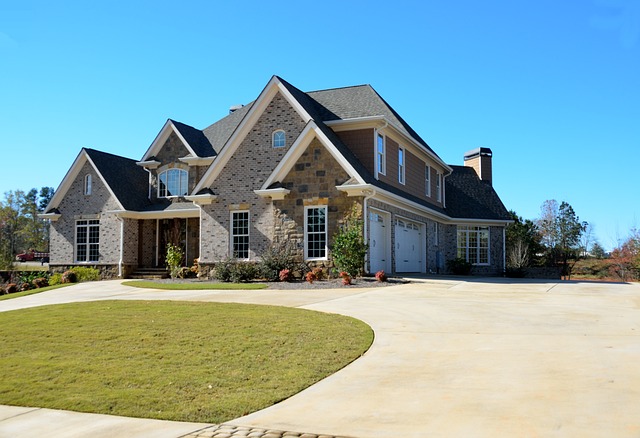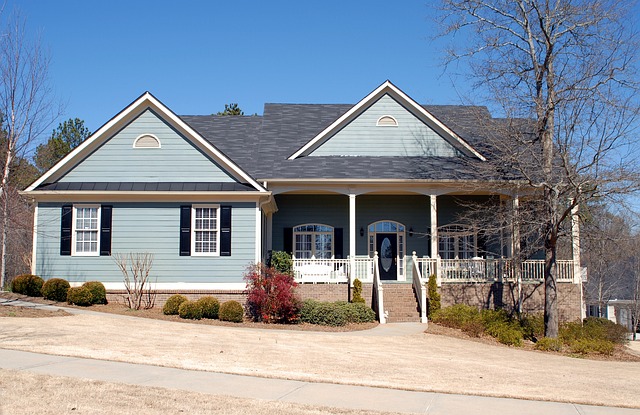When purchasing a second property in Singapore, it's crucial to understand the Additional Buyer's Stamp Duty (ABSD) under the AbsD Singapore framework. The ABSD is a tax levied by the Inland Revenue Authority of Singapore (IRAS) on all residential property purchases and varies depending on the buyer's marital status and existing property ownership. Singaporeans, permanent residents, and foreigners each face different rates upon acquiring a second property, with rates increasing for subsequent properties. For instance, singles must pay a 12% ABSD on their second home, while married couples could face up to 15% for each additional property beyond the first. These rates are designed to cool down the property market and promote responsible home ownership. It's essential to stay updated with IRAS guidelines as these rates are subject to change, and the financial implications can be significant, impacting the total cost of your property transaction. Inaccurate marital status declaration can lead to retroactive effects on ABSD payable or eligibility for a refund, so careful consideration of one's marital status is key when navigating AbsD Singapore 2nd Property investments.
Navigating the real estate market in Singapore, especially when acquiring a second property, requires careful consideration of various regulations and financial implications. Among these is the Absolute Self-help Body (ABSD) for second properties, which imposes additional taxes on property purchases beyond an individual’s first home. This article delves into common pitfalls faced by buyers when dealing with the ABSD Singapore 2nd Property framework. From misjudging eligibility and liability to overlooking marital status implications and miscalculating rates, potential homeowners must be well-informed to avoid costly errors. We will explore these mistakes in detail, ensuring that readers understand the intricacies of the ABSD for second properties and the long-term financial commitments involved. Understanding these aspects is crucial for a strategic and compliant approach to property investment in Singapore.
- Understanding the ABSD for Second Properties in Singapore
- – Overview of Additional Buyer's Stamp Duty (ABSD) framework for multiple property ownership
- 2. Misjudging Eligibility and Liability for ABSD on 2nd Property
- – Common misconceptions about eligibility criteria for ABSD on subsequent properties
- Overlooking the Impact of Marital Status on ABSD Implications
- – How marital status affects the calculation of ABSD for second properties
Understanding the ABSD for Second Properties in Singapore
When acquiring a second property in Singapore, understanding the Additional Buyer’s Stamp Duty (ABSD) is crucial for prospective homeowners and investors. The ABSD, commonly referred to as Absd Singapore 2nd Property, is a duty imposed on individuals purchasing residential properties here, with rates that vary based on the type of property being bought and the citizenship of the buyer. For instance, Singaporean citizens are subject to a higher ABSD rate compared to permanent residents or foreign entities when acquiring a second property. This tax aims to curb speculative buying and ensure a stable property market, balancing the needs of owners and first-time buyers. It’s important for individuals considering the purchase of a second property to accurately calculate the ABSD they will incur as it can significantly impact the overall cost of the acquisition. The rates are subject to change, so staying abreast of the latest regulations from the Inland Revenue Authority of Singapore (IRAS) is essential. Non-compliance with these regulations can lead to penalties and additional costs, which can be substantial. Thus, thorough research and professional advice are recommended before proceeding with the purchase of a second property in Singapore to navigate the ABSD requirements effectively.
– Overview of Additional Buyer's Stamp Duty (ABSD) framework for multiple property ownership
When navigating the real estate landscape in Singapore, understanding the Additional Buyer’s Stamp Duty (ABSD) framework is paramount for those considering ownership of multiple properties. The ABSD, implemented by the Inland Revenue Authority of Singapore (IRAS), imposes additional taxes on property purchases by individuals who already own one or more residential properties within the island-state. For instance, acquiring a second property will attract a higher rate of ABSD compared to the first property purchase. This progressive tax is designed to curb speculative behavior and encourage responsible property investment. Prospective buyers should be aware that the ABSD rates escalate significantly with each additional property, which can have a substantial impact on the overall cost of acquisition. It’s crucial for potential second-property owners to calculate these additional costs accurately and plan their finances accordingly to avoid any unforeseen financial strain post-purchase. The ABSD rates are subject to change based on Singapore’s economic policies, making it essential for individuals to stay updated with the latest regulations under the Absd Singapore 2nd Property guidelines before making any property investment decisions.
2. Misjudging Eligibility and Liability for ABSD on 2nd Property
When acquiring a second property in Singapore, individuals often overlook the intricacies of the Additional Buyer’s Stamp Duty (ABSD) regulations governing AbsD Singapore 2nd Property. It is imperative to accurately assess one’s eligibility and the associated liabilities before proceeding with such a transaction. The ABSD is a duty payable on instruments of transfer or possession of property in Singapore, and it varies depending on the number of properties owned. For instance, singaporeans and permanent residents purchasing a second residential property are subject to a higher rate of ABSD compared to their first property. Misjudging these rules can result in significant financial penalties. Therefore, prospective buyers must consult the latest guidelines provided by the Inland Revenue Authority of Singapore (IRAS) to ascertain their specific ABSD rates and ensure compliance with the legal requirements.
Furthermore, the mistake of assuming that one’s property status remains unchanged can lead to a miscalculation of the liabilities involved. Life events such as divorce or the loss of a loved one may affect property ownership status. Similarly, if an individual had previously owned property but sold it without realizing that the holding period for absolution from ABSD was not yet fulfilled, they may inadvertently become liable for the duty upon their next purchase. It is crucial to keep abreast of these changes and understand how they impact the ABSD applicable to AbsD Singapore 2nd Property. A proactive approach and timely consultation with legal experts can prevent costly errors and ensure a smooth transaction process.
– Common misconceptions about eligibility criteria for ABSD on subsequent properties
When navigating the complex landscape of property investment in Singapore, understanding the Additional Buyer’s Stamp Duty (ABSD) on subsequent properties is crucial for prospective buyers. Common misconceptions about the eligibility criteria for ABSD on subsequent properties can lead to costly mistakes. For instance, some may believe that only non-Singaporean citizens are subject to this duty; however, this is not accurate. Singaporean citizens are also liable to pay ABSD if they are purchasing a second property within three years of acquiring their first property. The rates increase significantly for subsequent properties compared to the first, which can be a substantial financial consideration for investors. Another misconception is that all types of properties incur the same ABSD rates. In reality, the ABSD rates differ depending on whether the property is residential or industrial, and whether it is purchased as a individual or entity. It’s also a common oversight to assume that if a property is sold within a certain period, the ABSD paid can be refunded. This is not the case; the duty is calculated based on the date of purchase, and any subsequent sale occurs after the fact, with no automatic entitlement to a refund. Prospective buyers should thoroughly review the ABSD guidelines and seek professional advice to ensure they are well-informed and compliant with the regulations surrounding Absd Singapore 2nd Property transactions. Understanding these nuances can save investors from financial penalties and help them navigate the property market with greater confidence.
Overlooking the Impact of Marital Status on ABSD Implications
When considering the purchase of a second property in Singapore, individuals often overlook the significant role marital status plays in determining Additional Buyer’s Stamp Duty (ABSD) implications under the Abs-D Singapore framework. For single individuals, the ABSD rate for a second residential property stands at 12% as of the knowledge cutoff date. However, the situation is markedly different for married couples or those in a substantively similar relationship. The Inland Revenue Authority of Singapore (IRAS) imposes ABSD based on the number of properties owned by the couple, jointly or severally. Therefore, acquiring a second property with a spouse can result in a higher ABSD rate, up to 15% for each additional property beyond the first, thereby increasing the cost burden substantially. It is imperative for potential buyers to comprehend how their marital status interacts with the ABSD regulations to avoid financial pitfalls and make informed decisions when investing in Abs-D Singapore 2nd Property. Failure to account for these nuances can lead to unforeseen expenses and may even affect the viability of the investment. Thus, a thorough understanding of the ABSD implications based on marital status is crucial for anyone looking to acquire a second property in Singapore’s property market.
– How marital status affects the calculation of ABSD for second properties
When navigating the acquisition of a second property in Singapore, understanding the implications of marital status on Additional Buyer’s Stamp Duty (ABSD) calculations for AbsD Singapore 2nd Property is crucial. The Inland Revenue Authority of Singapore (IRAS) mandates that married individuals are subject to ABSD at a higher rate compared to singles when purchasing a second property, regardless of whether it’s jointly or individually. For instance, if a married couple purchases a second property together, they will be liable for twice the ABSD rate applicable to single individuals. This increased rate reflects the government’s stance on moderating demand and promoting responsible home ownership. It’s important for couples to consider their marital status in relation to property purchases, as it significantly affects the overall cost of acquiring a second home. Similarly, single individuals should be aware that their marital status will influence the ABSD rate they incur, which can be a substantial factor in their financial planning for additional properties under AbsD Singapore guidelines.
Moreover, the dynamics of one’s marital status can change over time, and such changes can retroactively affect the ABSD payable if the transaction does not reflect the updated status. For example, if a married individual becomes single after entering into a contract for a second property, they may be entitled to a refund of the differential ABSD, subject to IRAS approval. Conversely, if their marital status changes to married post-transaction, they would have to pay the additional ABSD that would have been due had their status been accurate at the time of purchase. Therefore, it is imperative for individuals to accurately declare their marital status when applying for AbsD Singapore 2nd Property to avoid complications and financial penalties.
When navigating the intricacies of property investment in Singapore, understanding the nuances of the Additional Buyer’s Stamp Duty (ABSD) on second properties is paramount. This article has highlighted key areas where individuals often falter, from misinterpreting eligibility criteria to overlooking the implications of marital status on ABSD obligations. It is crucial for potential property owners to carefully assess their situation within the ABSD framework set by the Singaporean government. By doing so, they can avoid common pitfalls and make informed decisions regarding their second property investments. For accurate guidance and up-to-date information on ABSD in Singapore, consulting with real estate professionals or legal experts is advisable. With due diligence, investors can confidently engage with the Singaporean property market, ensuring compliance and optimizing their investment strategies.



